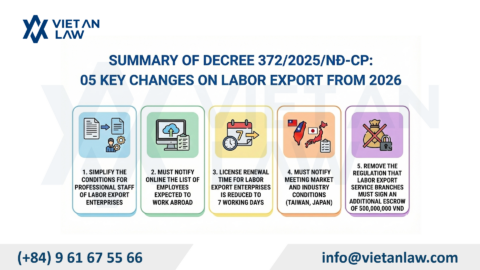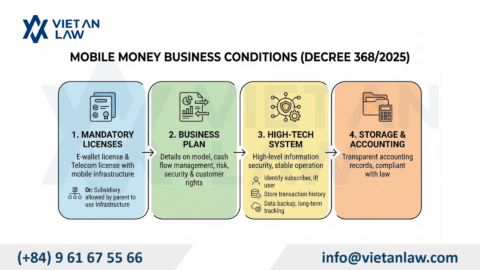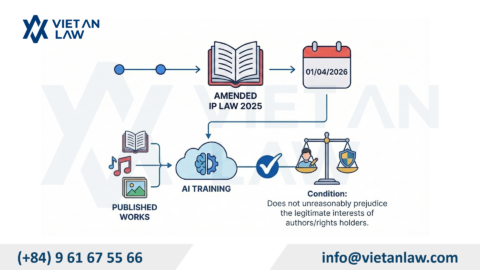On March 03, 2025, the Government promulgated Decree No. 58/2025/ND-CP, providing detailed regulations for the implementation of certain articles of the Law on Electricity regarding the development of renewable and new energy, replacing Decree No. 135/2024/ND-CP. This Decree introduces numerous incentive policies aimed at promoting the growth of clean electricity, encouraging investment, and ensuring national energy security. Below is an overview of the key highlights of Decree 58/2025/ND-CP on renewable energy in Vietnam.
Table of contents
Decree 58/2025/ND-CP introduces various incentive mechanisms for renewable energy projects, particularly for wind power, solar power, and new energy sources such as green hydrogen and green ammonia. These projects are entitled to preferential electricity pricing, grid connection mechanisms, and financial support policies.
One notable point of Decree 58/2025/ND-CP is the regulation on the priority dispatch of renewable energy (Article 4). Specifically:
In addition to traditional renewable energy sources such as wind and solar power, Article 6 of Decree 58/2025/ND-CP also provides special incentives for electricity generated from new energy, including electricity produced from 100% green hydrogen, green ammonia, or a combination of both. Projects in this category that supply electricity to the national grid shall enjoy the following benefits:
However, to be eligible for such incentives and support, the project must satisfy the following conditions:
This is considered a pioneering policy designed to encourage pilot projects in new energy sectors, laying the foundation for market formation and attracting investments in modern, clean power generation technologies.
Decree 58/2025/ND-CP reaffirms the legal framework for rooftop solar power systems for self-production and self-consumption established under Decree 135/2024/ND-CP, while classifying rooftop solar projects into two categories as follows:
Self-produced and self-consumed rooftop solar systems (RSPV) are permitted to sell surplus electricity of up to 20% of the actual monthly generated output. This is a positive signal that enhances the economic efficiency of such models, especially for households or businesses with fluctuating load demand by season or time of day.
Group 1:
The total installed capacity of the project must not exceed the power capacity quota allocated under the provincial electricity development plan.
Group 2:
The key highlights of Decree 58/2025/ND-CP on renewable and new energy development demonstrate significant adjustments to address existing obstacles for rooftop solar projects. Notably, the Decree allows any building structure, regardless of ownership, to install rooftop solar systems for self-production and self-consumption, provided technical and legal requirements are met. This greatly expands the scope of RSPV deployment, especially across industrial zones and clusters, which are major electricity consumers.
In particular, the procedures and documentation for developing self-produced and self-consumed rooftop solar systems are now simplified and clarified, reducing unnecessary pre-approval steps. Instead of multiple pre-check stages, the new policy shifts the focus toward mid- and post-operation inspection, with supervision by specialized agencies after system commissioning.
To promote domestic technological advancement, Decree 58/2025/ND-CP provides support for research, production, and technology transfer in the renewable energy sector. Manufacturers of wind turbines, photovoltaic panels, energy storage batteries, and conversion equipment shall enjoy incentives in taxation, credit access, and workforce training.
Vietnam is currently aiming to increase the localization rate within the renewable energy supply chain, reducing dependence on imported technologies. This is a crucial step toward ensuring self-sufficiency and long-term sustainable growth in the power sector.
Decree 58/2025/ND-CP also specifies reporting obligations for investors of solar, wind, biomass, and other renewable projects regarding generation output and operating conditions (e.g., solar hours, wind speed, biomass volume, etc.). The regular submission of such data enables regulatory authorities to closely monitor project operations, serving as a basis for adjusting planning and optimizing power dispatch.
Immediately after the Decree’s promulgation, Vietnam Electricity (EVN) issued Decision No. 378/QD-EVN dated March 12, 2025, on “Technical Requirements for Connecting Rooftop Solar Systems to the Power Grid,” ensuring uniformity across the national and local distribution levels.
It can be seen that the issuance of Decree 58/2025/ND-CP is a positive signal for investors in the renewable energy sector in Vietnam, with the following notable highlights:
These preferential policies not only help reduce financial risks but also facilitate the rapid implementation of renewable energy projects, contributing to Vietnam’s progress toward the goal of green and sustainable energy development. For further inquiries or assistance on key highlights of Decree 58/2025/ND-CP on renewable energy in Vietnam, please contact Viet An Law for the best legal support.




